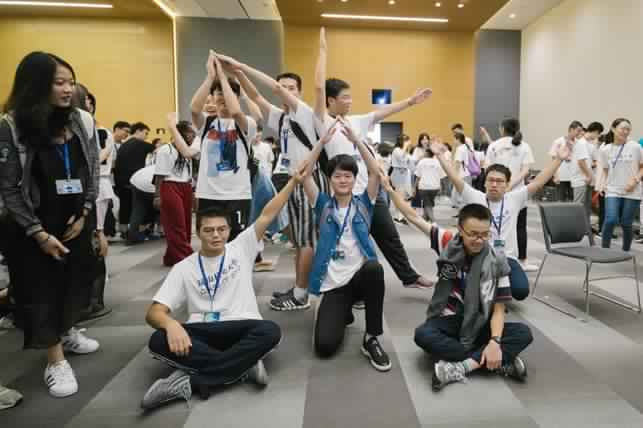
Class of 2022 Wang Yechen
Winner of the Ying Hui Scholarship
Speech by Wang Yechen at the 2018 Duke Kunshan University Thanks-Giving Dinner & Scholarship Celebration on Nov. 8, 2018
My name is Wang Yechen and I come from Yichang, Hubei province. In my hometown, all the students want to go to a good university. Teachers and parents define a good university as a Project 985 or Project 211 university. When I first seriously considered my university choices, those good Chinese universities impressed me as “not very real”. I asked myself, is this really what I want? A degree, some professional knowledge, a graduation thesis, are these all a university can offer? I should pursue higher. Therefore, I chose to study at Duke Kunshan University (DKU), and people sitting here all made the same choice.
I’ve been studying at DKU for only seven weeks, but long enough for me to fall deeply in love with it.

What can one do in just seven weeks? In the data science course, we learned the programming language Python and some algorithmic foundations of mechanical learning in seven weeks. At the end of the 7-week session, three students formed a group to select a topic and work on the final project. My group chose Dao De Jing (“The Classic of the Way and Its Power”), a compilation reflecting a particular strain of thought from around 300 BCE. You may wonder, “How to conduct data analysis for Dao De Jing?” Dao De Jing has more than one hundred versions of English translation, and each version is different. For example, the Chinese word “Dao” is translated by some as “Tao”, using an approximation of the Chinese pronunciation, while by others as “the Way”, using its meaning. We extracted each version, classified them based on the translation habits of their authors, and then compared the versions in the same category to identify whether their authors shared some similarities or differences. Are they from the same country? Are their translation habits influenced by the era or their age? Is there a coherent school of translation? All the answers can be found through data analysis.
In the last week, we elaborately made a project poster and displayed our project in the lake pavilion. Each student racked his brains to illustrate his topic so the audience can easily understand. This made me feel more like a scholar than a student. In my view, students are passive learners of knowledge, while scholars are active seekers of knowledge. As a matter of fact, most of the techniques we used in the final project have never been taught in class. For many parts, we stayed up late every night to find information and write algorithms. From having no programming foundation to being proficient in Python language and even being able to write new algorithms and do some meaningful projects, it took only seven weeks.

What else can be done in just seven weeks? We set up our own club. In order to create a club, we attended a series of trainings to improve leadership. However, I found very few people have programming foundation. In high school, I took part in the Olympiad of Informatics and had some programming knowledge. So, I thought, why don’t I teach programming to fellow students? Luckily, the president of the Mathematical Modeling Club had the same idea! He is good at Python and I am good at C language. We then agreed to offer programming lessons every weekend. He teaches Python and I teach C language. Everyone is welcome. At the end of this session, all members of the clubs will learn to use at least one programming language. From putting forward the idea of setting up a club, to receiving training to formally set it up, and to teaching members to use programming languages, it took only seven weeks.

This is our DKU, and what I experienced during my first seven weeks at DKU. It was in this short period of seven weeks that I realized DKU students are supposed to be more than excellent students, they should aspire to become excellent scholars. An excellent scholar should not only know how to discover knowledge, but also be willing to impart their knowledge to more people. What makes all this possible is the long-standing support and help given by each and all donors to DKU. It is your trust and support that gives us the courage and determination to build DKU into an ideal university we have all dreamed about.
DKU has made so many great achievements in just five years since its establishment in 2013. Then we may boldly imagine how strong and powerful DKU will grow in another five, ten, fifteen, or twenty years. We don’t know for sure. However, I can confidently say that DKU will become the star of education in the 21st century, guiding us to the future, to truth and justice. DKU’s students will become the backbone in research in the fields of natural sciences, humanities and social sciences in the 21st century. I believe that when we look back at the development of DKU 20 years later, we will all congratulate ourselves on how brave and wise we chose to study at DKU and how brilliant DKU has grown thanks to our own efforts.